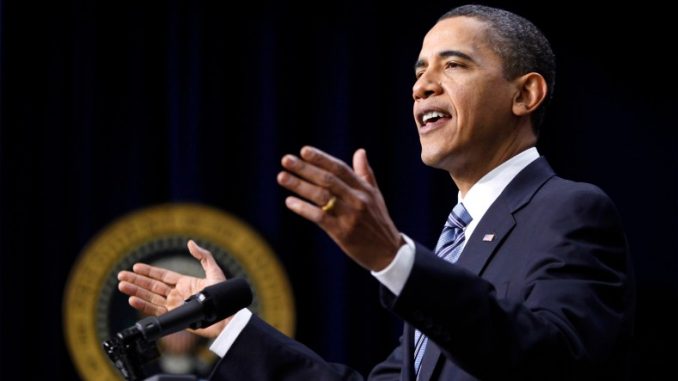
Today, The Atlantic carries an excerpt from a forthcoming memoir written by former president Barack Obama. In a section in which he lightly grapples with the view of American history popularized by Ta-Nehisi Coates in which “this nation’s ideals have always been secondary to conquest and subjugation, a racial caste system and rapacious capitalism,” Obama responds this way:
I don’t know. What I can say for certain is that I’m not yet ready to abandon the possibility of America—not just for the sake of future generations of Americans but for all of humankind. I’m convinced that the pandemic we’re currently living through is both a manifestation of and a mere interruption in the relentless march toward an interconnected world, one in which peoples and cultures can’t help but collide. In that world—of global supply chains, instantaneous capital transfers, social media, transnational terrorist networks, climate change, mass migration, and ever-increasing complexity—we will learn to live together, cooperate with one another, and recognize the dignity of others, or we will perish. And so the world watches America—the only great power in history made up of people from every corner of the planet, comprising every race and faith and cultural practice—to see if our experiment in democracy can work. To see if we can do what no other nation has ever done. To see if we can actually live up to the meaning of our creed.
The jury’s still out.
There’s always been a hyper-psychological read of the Obamas, that they are open to the view that America’s ideals are a lie, but the election of Barack Obama himself is the transfiguring event that allows them to be proud of their country for the first time. And there’s something funny about a former president having this slightly aloof view of his country, even today. “I don’t know . . . maybe America could be, on the whole awful.”
But what interests me is that Obama’s highest aspiration for America is for it to play the role of modeling (and perhaps hastening) the arrival of a universal human society. This is a kind of soft-as-pudding Wilsonian view of America. Although, read literally, it’s not so soft. There is a “relentless march” to the interconnected world, and the only alternative to it is to “perish.”
There’s a baffling lack of specificity here. America is not in fact comprised of people who have every “cultural practice.” To think of one among countless examples: Cousin marriage, and the tribal social norms that issue from that cultural practice, are not practiced here, or at least, not practiced openly and with approbation of the larger society. There’s no grappling with the way a universal society would threaten most “cultural practices.” Obama doesn’t have any idea what the character of such a universally interconnected society would be, what kind of people it would produce, what virtues it would prize, and vices it would encourage. The very technologies that can enable a connected world may empower us to disconnect from parts of the world, or from other members of our society. It’s fascinating to watch as the pandemic that spread in a connected world in fact drives many of us deeper into the home, and replaces travel with a teleconference. Is that a more connected world, or a more disconnected one?
There’s no sense of the ironies and challenges that we witness. Mass immigration brings about plunges in social trust. People flatter themselves for “welcoming” the immigrant at the open border, but slip themselves behind a gated community. Mass global communications seems to be driving intra-cultural contempt as much as enriching cultural exchange. A pope’s academic speech, or the latest issue of Charlie Hebdo, can start a riot in Pakistan, which can lead to a Koran burning in the Florida panhandle.
Maybe it’s time to start recognizing the tradeoffs in life.
Via National Review
